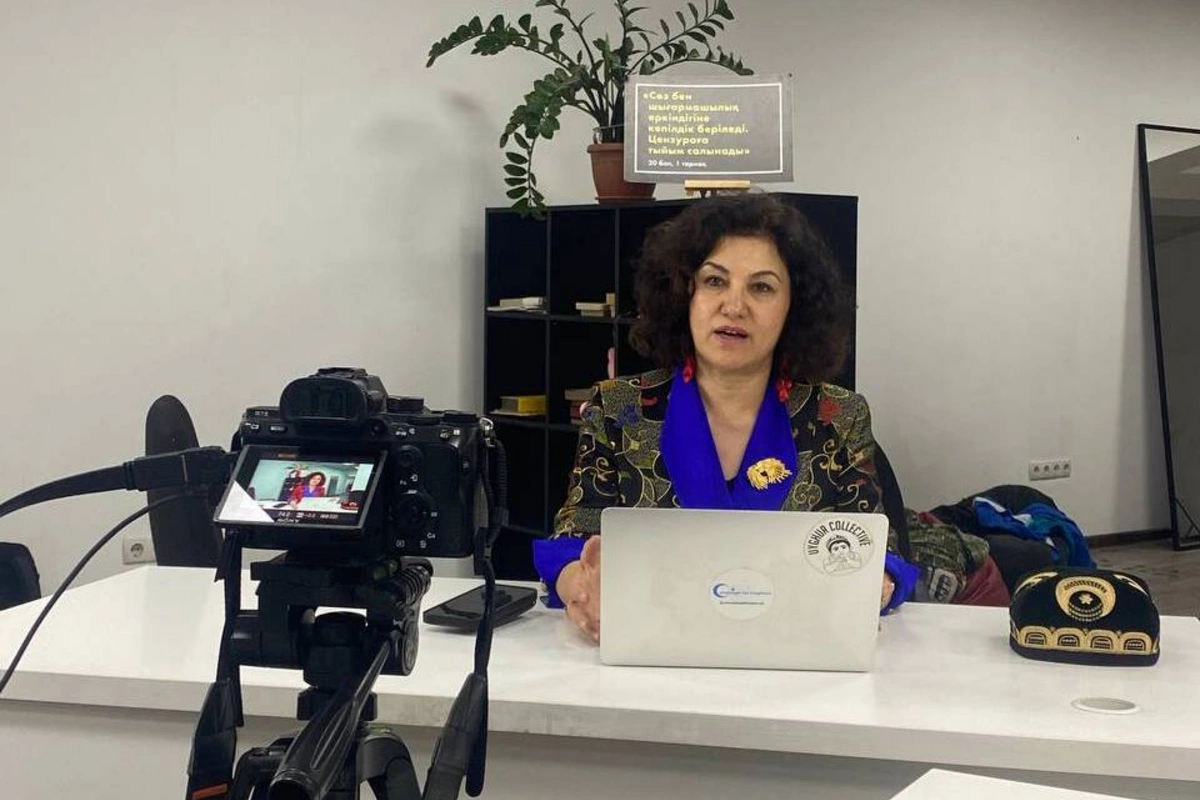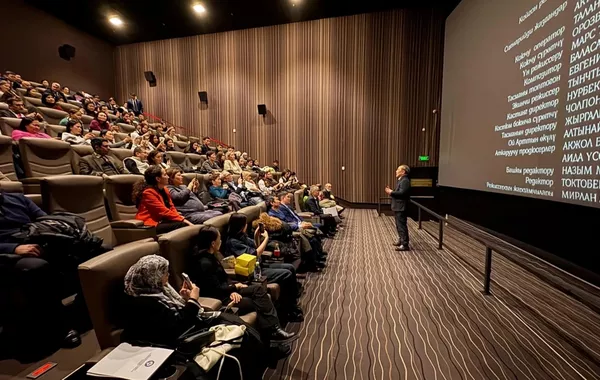
Jana Cekara Film Festival was set to be hosted in Almaty for the second year to advocate for the violation of rights of Turkic nations in China’s Xinjiang region. Yet a few days before the film festival was planned to open, the Kazakh National Security Committee pressured the venue providers to refuse to host it. Jana Cekara’s team, despite losing the venue, decided to move the festival online, refusing to be silenced in the country that some suggest supports the Chinese government on their “re-education” of Muslims in East Turkistan.
Image: courtesy photo
While the rest of the world acknowledges the sufferings and oppression of Uyghurs in Chinese camps, the Kazakh government is lenient with its neighbour’s crimes. There have been suggestions that the Kazakh government supports the Chinese government’s version that Uyghurs and other Muslim nations in China’s Xinjiang region, also known as East Turkistan, are being put in vocational education camps, not internment ones. Besides helping China’s proven to be fake statements, the Kazakh government, due to the fear of a worsening relationship with China, allegedly silences Kazakh activists who try to raise awareness on the issue of the Uyghur and Kazakh genocide happening in China.
One of the latest instances was the Jana Cekara Film Festival. Funded by the Freedom House Organization, this film festival was dedicated to raising awareness about human rights violations and the genocide of Uyghurs in East Turkistan. Ravkat Mukhtarov, an activist, member of the civil rights movement Oyan Qazaqstan, one of the organizers of Jana Cekara, and the only ethnic Uyghur on the team, says that the initiative wasn’t based on the idea of hosting a film festival per se but on advocacy for human rights, and a film festival became the medium through which they decided to present it. As in a State where demonstrations have to be sanctioned by the government in advance activists have to be creative when finding ways to show their support for human rights.

However, following the success of the first film festival last year, the Jana Cekara team became more vocal and visible this year, announcing the film festival on social media and giving interviews to local media to raise awareness, which inevitably got the attention of the National Security Committee (NSC). They pressured the venue provider, where Jana Cekara was supposed to be held, to cancel the festival only a few days before its beginning. Jana Cekara’s, team unable to find a venue in such a short amount of time and understanding that their chances to get anyone to agree despite the potential threats from the NSC were slim, had to move their festival online. Mukhtarov explains that although there are more cons to the festival being cancelled, there’s one pro—due to the Kazakh government’s involvement, more people got to know about the festival and the struggles of Uyghurs in East Turkistan.
Kazakhstan is home to the second biggest Uyghur diaspora in the world, with over 223,000 Uyghurs. Uyghurs are the fourth biggest minority group in Kazakhstan, which has been a motherland for many generations of Uyghurs. However, the majority of Uyghurs (over 11 million) still reside in China, as in 1949, China invaded East Turkistan and established the Xinjiang Uyghur Autonomous Region ever since. And while the two countries with the highest number of Uyghurs are united in their dismissal of the Uyghur genocide, the Uyghur diaspora remains in a vulnerable and oppressive position.
It doesn’t come as a surprise that the diaspora in Kazakhstan is afraid to get on the Kazakh government’s wrong side. “One of the things that worries me in Kazakhstan is how the Uyghur diaspora is in the hands of our authorities, the government. Organizations such as the Uyghur Theater, the Republican Association of Uyghurs, the Union of Uyghur Youth, and the Assembly of Peoples of Kazakhstan—all these associations, most of which are strongly affiliated with the authorities, cannot say anything contrary to the official position,” Mukhtarov explains. Yet the Uyghur diaspora in the West is becoming more outspoken and prominent. One such activist is Rushan Abbas, the head of Campaign for Uyghurs in the U.S., who travelled to present her film In Search of My Sister at the Jana Cekara Film Festival. Unfortunately, the day she landed in Almaty was when the festival was canceled. A few days later, Rushan Abbas was already back in the U.S. to testify at the Congressional-Executive Commission on China’s hearing for transnational repression.
This is not the first instance when we see governments around the world being unable to suppress the activism of their citizens online. Luckily, Kazakhstanis were still able to watch films presented at the Jana Cekara Film Festival online. However, for Mukhtarov and other Uyghurs who would like to show solidarity with their diaspora in East Turkistan, it is yet another reminder of the harsh reality of their right to speak up being taken away from them. “A big goal for me personally was for the Uyghur diaspora to gather in public to watch films, see each other, cry together, and speak out. So that people can talk freely, without pressure, without fear.” For Mukhtarov, East Turkistan is not a distant issue because of his own family members in the Xinjiang region, with whom they currently have no contact.
Following the online film festival, private screenings are planned in Astana, Tashkent, and Taipei. Mukhtarov admits that the way things are right now in Kazakhstan, future Jana Cekara Film Festivals are not likely to be organized offline.
Share on social media
